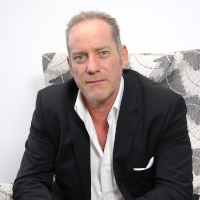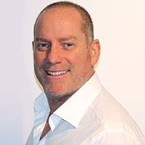The phrase “Keep calm and carry on” originated on a poster produced by the British government in 1939 with intention to raise morale when attack was imminent. Its sentiment seems particularly poignant at this juncture in time, when the nation has been dealt with a consistent stream of legislative, environmental and, now, health and safety blows.
China has long been the world’s economic furnace, buying bonds in global capital markets as vendor finance for the purchase of its manufactured goods. But if China is the furnace, then coronavirus is the extinguisher. Now, as China’s deadliest export ripples outward from Wuhan, its effects will be replicated worldwide.
But for the first time since 1929, we are witnessing a triple whammy: a drop in supply drivers, demand drivers and sentiment. And when sentiment is gone, we are in a bear market.
Socially, as the effect of coronavirus increases, it is hardly surprising that everyday people are acting in extraordinary ways. We are, after all, sentient beings whom in our everyday lives don’t stop to question that state of mind so essential to our psychological wellbeing – “certainty”.
Humans abhor uncertainty. It causes us to suffer anxiety and forces us to try to take charge of the smallest of things. This universal psychological phenomenon explains the tendency to panic buy and hoard. This sense of unease can be largely attributed to cortisol (higher levels of stress hormones). Cortisol is necessary to heighten our reflexes to prepare us for a fight or flight, but it leaves us with a hangover of anxiety. Anxiety increases levels of stress hormones. So, while we listen to our politicians offering assuring platitudes at home but witness utter carnage overseas, we can’t help but sense the incongruity, the uncertainty, in the messaging we are getting from our leaders. As a lender that specialises in structured finance, we witness first-hand the benefits that people feel from the removal of doubt and providing surety.
The paradox that drives people to hoard toilet paper is the same one that drives investors to rapidly withdraw from markets, making this viral contagion an investment-flight contagion at the same time. In Australia, where we have enjoyed 29 straight years of economic growth, and where an entire generation of workers readying for retirement have never before endured recession, this is breaking new ground.
Coronavirus and stock markets are inextricably linked. We can predict therefore that there will be no return to normalcy until and unless a vaccine is produced that removes the threat of contagion in people, and in markets.
We can take our own actions early, and these will count. China is only eight weeks beyond the point at which we are today, in Australia, and they are already preparing for society to normalise. Financial contagion is something else.
I would think that if you are not out of the stock market now, it might be time to act counterintuitively and invest because, once coronavirus subsides through herd immunity or via a circulating vaccine, the markets will slowly return and with better earnings per share than before. Dollar cost averaging will recover some of the losses incurred already.
We know, from 1929, that alcohol and games companies (and strangely lingerie manufacturers) offered investment opportunities during that recession. There will emerge businesses that fare well in this one – and they, amongst other industries that thrive on disruption, will invariably be turning to you to help seize an opportunity.
So, what now? What can we do and what can be done for us to prepare for the changes ahead?
There is no doubt this virus will cause us uncertainty, but survival is a state of mind, and it requires an almost existential commitment to positivity. It also requires an unreserved commitment to realism. The path to positivity must begin with a rational assessment of personal risk to self, family and business. From this comes the realisation of necessary action – a plan.
Semper has always had a plan. Planning is essential in maintaining agility and in reviewing and improving performance. Everyone should have a plan and be free to change it as the environment dictates. Everyone in our supply chain is similarly poised.
This madness and mayhem will soon be behind us, and the markets will begin their inevitable ascension. Having lived through two other market crashes, I know this to be so. And humanity in its darkest hour always appears to rise to meet the challenge strong in spirit.
We urge the broking community to stay safe, stay informed and stay calm.
Take necessary precautions, assess you own situation and make a plan. And if you have any doubt in yourself, just remember you are at the vanguard of a completely unbroken chain of evolution since the time of the Big Bang. You’re already a universal survivor.
Andrew Way is the director of Semper and is credit, investor relations, corporate strategy and responsible lending lobbyist.
Andrew has worked in banking and finance for 30 years, specialising in risk management. Originally from the UK, he worked in Hong Kong and Singapore for 12 years before moving to Australia in 1999 as CEO International Ratings for Ernst & Young. He has also worked in the private sector and as a consultant and advisor to governments and non-governmental organisations.
Andrew is one of the founders of Semper and remains an advocate of regulatory reform in the (currently non-regulated) commercial finance sector and a proponent of responsible lending practices.

